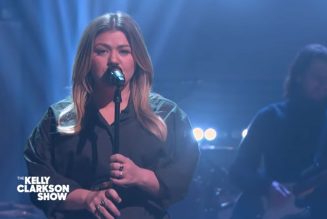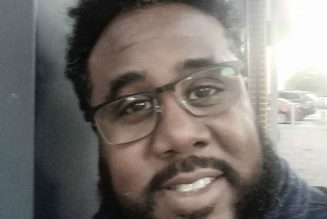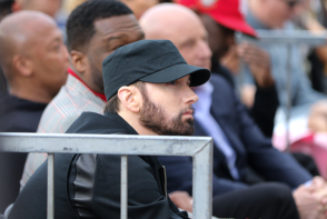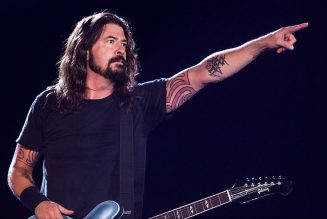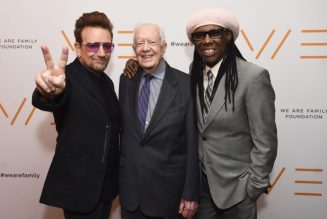
In May, Romero and his band, Orishas, released “Amame Como Soy” (Love Me As I Am), a rework of “Amame Como Soy,” the now-classic track by Cuban troubadour Pablo Milanés. The new version quotes the Milanés chorus, but the verses — accompanied by black-and-white footage and pictures of Cuba and imagery that alludes to repression — are harshly critical of the Cuban government.
The song caused a stir on the Caribbean island. But that’s been nothing compared to Romero’s new single “Patria y Vida,” which he performs with fellow Black Cuban musicians Descemer Bueno, Gente de Zona, Maykel Osorbo and El Funky. With a title that translates to “Country and Life,” a direct rebuke to Cuba’s official slogan –Country or Death — the song and video released Feb. 16 have unleashed a wave of criticism from Cuba’s Communist Party.
And it’s no wonder. With lines like “No more lies, my people ask for liberty/ No more doctrines, let’s no longer shout Country or Death, but Country and Life,” the song is a direct call for a change in government.
On its own, this isn’t new. For generations, Cuban artists — especially those in exile — have criticized the Cuban regime. And for generations, the Cuban regime has criticized right back.
But now, with social media and growing access to the Internet back in Cuba, those messages are amplified.
“The song has gone to places a speech would never be able to reach,” said Romero, noting its 2.3 million views on YouTube since its release. “And we wanted to show how a dictatorship behaves with its artists; that if you propose an exchange of ideas, you hit a wall.”
Outside of Cuba, however, the song has struck a different chord. On Friday (Feb. 26), Romero was invited to speak about repression in Cuba before the European Parliament as part of the third EU-Cuba Human Rights Dialogue.
It’s major validation for an artist who for the past two years has been relentlessly advocating for changes in Cuban, ranging from liberty of expression to mobility.
“[Orisha’s] songs always denounced what happened in Cuba, but metaphorically,” says Romero. “Because we were afraid of repression, of bullying. Cuba was like a capsule. Until one day, the floodgates open. Because the harm is chronic, you don’t realize you’ve been sick. But that’s been the Cuba I’ve seen since I was born, with problems, internal blocking, Cubans not allowed to go inside hotels. My father was arrested once for having $5.”
Romero’s arguments are bolstered by the fact that he was joined in the song by two other prominent Cuban acts who, like him, now reside in Miami: Gente de Zona and Descemer Bueno. But they, along with Orishas, have long commuted between their island and the United States and rose to fame on the island.
“As Cubans, the last thing you want to lose is your country,” explains Gente de Zona member Randy Malcom. “We were proud to sing our music around the world. But we need democracy in Cuba.”
“Our hope is that the situation in Cuba improves,” adds Gente De Zona’s Alexandre Delgado. “We deserve a change in 2021, and our country has no need to be suffering as it has for generations. It’s been 62 years with the same government that has hurt Cuba and its people, leaving youth with no hope. We’ve also been victims for the simple fact of thinking different, of not being Communist. We’ve been attacked and censored.”
In response to the song, the editorials on Granma, the official media instrument of Cuba’s Communist Party, have been coming fast and furious.
“This song full of hate … that tries to exchange Cuba for 1 million YouTube views,” wrote Pedro Jorge Velázquez on Feb. 17. “Its hate doesn’t represent me. Its horrible lyrics don’t represent me. Gente de Zona doesn’t represent me.”
Among many other write-ups, the newspaper also quoted a statement written by the Association of Musicians from the Union of Writers and Artists of Cuba, criticizing “personalities born and raised in our country, who use their voices to increase their mercenary popularity.”
Even Cuba’s president, Miguel Díaz-Canel, has weighed in several times on his Twitter account, although without naming names.
“#Patriaomuerte (Country or Death) thousands of us shouted last night,” he tweeted on Feb. 19. “They wanted to erase our slogan and we made it viral.”
For Bueno, Gente de Zona and Romero, the attacks, although hurtful, are moot. Bueno and Gente de Zona both said they’re not allowed to perform on the island anymore.
“[The Cuban government] has used COVID as an excuse to attack anyone who’s against the government,” says Bueno. “I’ve been banned from the radio for a little under a year. Last May, they told me I couldn’t play more concerts there. We’ve been left with no other option but to be the voice of Cubans outside Cuba.”
Has it been effective?
“Well, I’m talking to you, aren’t I?” he replied.
Watch “Patria y Vida” here:


